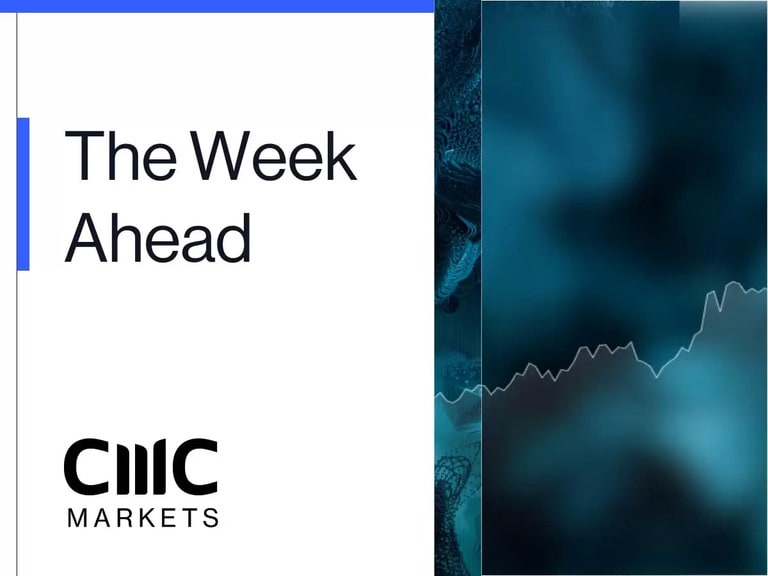European markets are on the back foot today as the political temperature in the Middle East ratchets up further in the wake of the hospital bombing in Gaza.
Europe
With evidence starting to emerge that Israel may not have been responsible for the blast, the reality is that this may no longer matter given the heat already generated by last night’s horrific events. A lot of people have already made up their minds and aren’t likely to be dissuaded from their initial views which could well mean that it is going to be very hard for cooler heads to prevail.
Sentiment hasn’t been helped by reports of airport shutdowns in France due to terror threats which are weighing on the airline sector with losses for easyJet, IAG, Wizz Air and Ryanair.
AstraZeneca is also a significant drag after it emerged by way of a data leak that the pharmaceutical company’s new lung and breast cancer medicine wasn’t as effective on treating lung cancer as early results suggested it might be.
UK housebuilders have come under pressure after Barratt Developments reported that forward sales were down quite sharply from the same period a year ago, at its AGM today. 9,221 properties were sold in the period from 1st July to 8th October, a sharp fall from the 13,314 a year ago. Barratt kept its full year guidance unchanged for the current year, saying that trading remained in line with expectations, with today’s weakness probably more to do with concerns that interest rates might need to rise further after September inflation came in slightly higher than expected. Taylor Wimpey and Berkeley Group shares are also lower.
On the bright side today’s best performer has been Premier Inn owner Whitbread which has seen some solid gains so far year to date with the UK business showing a strong recovery from the impacts of the Covid pandemic. In June the company reported a 19% increase in total revenue for Q1, with today’s H1 results seeing that slow to a 17% rise in statutory revenue of £1.57bn.
Statutory profits before tax saw a 29% increase to £395m, driven by a 15% rise in UK sales with revenue per room rising 14% to £71.02. Food and beverage sales were up by 10%. While forward bookings are trending in line with last year, actual revenue for Q3 and Q4 is trending ahead of last year, as consumers manage to absorb higher prices.
The German business has continued to act as a drag but even here the outlook is improving with losses narrowing to £14m and Rev PAR rising 31% to £45.79.
On the outlook full year guidance has been left unchanged with full year capex increased to £500-£550m.
US
US markets have opened lower as investors switch into risk off mode as the temperature goes up in the Middle East in the wake of the hospital bombing in Gaza. Whoever turns out to be responsible the facts no longer matter given that most people have already made up their minds, sending gold prices to 4-week highs, and oil prices to 2-week highs.
Airlines are feeling the pressure after United Airlines flagged that it could see a sharp fall in profits as it downgraded its Q4 expectations for profits to $1.80c a share if flights to Tel Aviv continue to stay grounded until the end of the year.
Morgan Stanley shares are ticking lower after reporting Q3 revenues of $13.3bn and profits of $1.38c a share, both of which were slightly ahead of forecasts. Drilling down into the numbers they were some notable misses, with wealth management falling short at $6.4bn, even as FICC and equities trading revenue was better than expected. Equities trading saw revenues come in at $2.51bn, and FICC at $1.95bn.
Tesla shares are slightly lower, testing support from the August lows ahead of the release of their Q3 numbers after the bell. Earlier this month Tesla confirmed that vehicle deliveries slowed to 435,059, well below forecasts with production downtime at the Shanghai and Austin gigafactories accounting for most of the shortfall. This week’s numbers are once again expected to be focussed on margins as the price war continues. As far as its other businesses are concerned which include energy generation and storage these have seen strong growth over the past 12-months with Q2 seeing at 74% increase in revenue to $1.51bn. Q3 revenues are expected to fall modestly from the numbers seen in Q2 to $24.6bn while profits are expected to come in at $0.77c a share.
Netflix shares are also lower, dropping to 5-month lows ahead of their Q3 numbers, which are expected to see revenues of $8.5bn, and to see around 6m new subscribers as they roll out the crackdown on password sharing. Profits are expected to come in at $3.52c a share or $1.58bn. The streaming industry is also having to contend with the impact of the writers and actors strikes, and while Netflix said it expects to see better cashflow because of the strikes due to not having to pay out as much on new content, any impact from the strike isn’t likely to be felt when it comes to new content until next year. Operating margin is also expected to improve to 22%, with full year operation margin forecast to be between 18-20%.
FX
The pound tried to edge higher after September CPI came in higher than expected at 6.7%, with most of the increase being driven by higher petrol prices, which offset a modest fall in food prices. Core prices eased slightly to 6.1% however services-based inflation rose from 6.8% year on year to 6.9%. The modest increase in the headline numbers has seen UK gilt yields edge higher on concerns that the Bank of England might feel the need to hike rates again before the end of the year. Even allowing for today’s stickier than expected data, the October inflation numbers should see another big fall given that the energy price component should see a big fall from the same period last year when the price cap jumped sharply. With energy prices now much lower this should translate into a sharp fall in this component which in turn should see a commensurate fall in the headline rate for October. The Bank of England will know this so will probably resist any temptation to even consider another hike before they see the October inflation numbers.
The best performers today have been the US dollar, Swiss franc and Japanese yen as markets adopt a haven bias.
Commodities
Crude oil prices have nudged up to their highest levels in 2-weeks after Iran called for an oil embargo on Israel in response to yesterday’s explosion at the hospital in Gaza.
Gold prices have also pushed higher, rising to 2-month highs after the bombing of the hospital in Gaza, along with the calls by Iran for an oil embargo on Israel raised the political temperature further and increased anxiety that an escalation could be imminent.
Volatility
Pfizer stock saw another elevated day of price action on Tuesday, giving back some of those gains racked up on Monday in response to the cost saving plans. The underlying closed 1.5% lower, with one day volatility printing 59.83% against 38.24% on the month.
News of a decline in profits from Goldman Sachs also hit the banking heavyweight, although the move was attributed at least in part to a pull back from retail banking and performance was bolstered by stronger than expected bond trading. The numbers were also in line with market expectations, leaving the stock again only 1.6% down. One day vol sat at 56.23% against 35.01% for the month.
Across the wider US banking sector however the mood was typically more upbeat with a few others from the cohort faring well during Tuesday’s session. That was sufficient to drive CMC’s proprietary basket of US banking stocks out to highs for October, lifting one day vol to 51.37% against 38.19% for the month.
And a combination of US and Canadian data saw activity on Dollar-CAD spike mid-session. In something of a perfect storm, US retail sales beat expectations, whilst simultaneously Canadian inflation readings stalled. The result was a short lived 60-point spike for the pair, moving one day vol to 8.1% against 6.17% for the month.
Disclaimer: CMC Markets is an order execution-only service. The material (whether or not it states any opinions) is for general information purposes only, and does not take into account your personal circumstances or objectives. Nothing in this material is (or should be considered to be) financial, investment or other advice on which reliance should be placed. No opinion given in the material constitutes a recommendation by CMC Markets or the author that any particular investment, security, transaction or investment strategy is suitable for any specific person. The material has not been prepared in accordance with legal requirements designed to promote the independence of investment research. Although we are not specifically prevented from dealing before providing this material, we do not seek to take advantage of the material prior to its dissemination.








